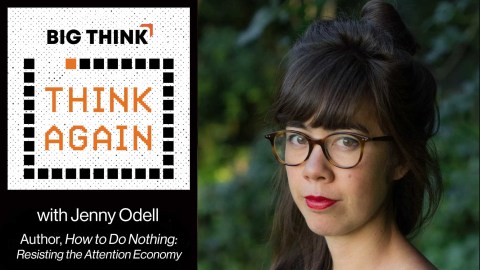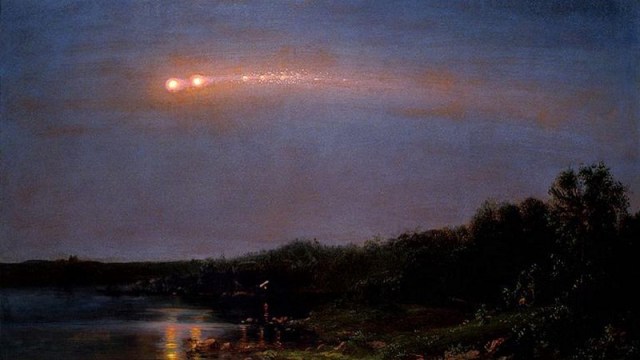Attention as an act of resistance – with Jenny Odell

Ryan Meyer
- “Someone is defining the terms already by asking the question. And if you’re not attentive, you will accept those terms.”
- “It’s really hard to draw a hard line around an entity in any ecological system. And I think this is a great description of the self, too.”
When I think of my childhood home in Bethesda, Maryland, depending on what kind of mood I’m in, I think either of the mall or of the woods. Although there were some fun moments looking at the inappropriate novelty items like at Spencer Gifts, such as edible underwear, the mall in my memory is a symbol of suburban anomie and alienation. A place, as my guest today would put it, without context.
The woods, on the other hand, were endless and full of surprises. We’d follow the twisting creek, overturn rocks to find crawfish, and eat sassafras leaves. Once we made Molotov cocktails out of my mom’s nail polish and threw them into the creek with pure, anarchic joy. In the woods, I was always, utterly present—connected to every sound and attuned to the slightest movement. In the mall, I was mostly conscious of whether or not my jacket looked cool.
I’m here today with Jenny Odell. She’s an artist and educator who grew up in Silicon Valley and teaches at Stanford, the heart of the attention economy that’s colonizing more and more of the cultural woods. She’s also an avid bird watcher—or “bird noticer”, as she might put it. Her wonderful new book HOW TO DO NOTHING: RESISTING THE ATTENTION ECONOMY is something like a primer for growing the woods inside the mall. It’s about carving out space for ourselves in a world that wants to put our time and our lives to other, more utilitarian uses.
Surprise conversation starters in this episode:
Edward Slingerland on the Taoist concept of Wu Wei and how it plays out in Chinese business culture





